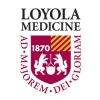Heart Disease and Menopause: Understanding the Risks
As women approach menopause, they experience many changes in their bodies, some of which can have a lasting impact on their health. One of the most significant health concerns during this time is the increased risk of heart disease. I’ve noticed that many women, including myself, don’t fully realize how menopause can change our cardiovascular health. With menopause, the natural decrease in estrogen levels can influence several risk factors for heart disease. Understanding these risks is crucial for women at this stage of life to make informed decisions about their health. In this article, I’ll break down the connection between heart disease and menopause, and explore ways to manage these risks through lifestyle changes and medical guidance.

1. The Link Between Menopause and Heart Disease
Heart disease is a leading cause of death for women, and menopause significantly influences the risk factors associated with cardiovascular problems. When I first learned that menopause increases the risk of heart disease, I was surprised. Here’s why it happens: estrogen, the hormone that declines during menopause, has a protective effect on the heart and blood vessels. Estrogen helps maintain healthy cholesterol levels, supports the elasticity of blood vessels, and contributes to the overall efficiency of the cardiovascular system. As estrogen levels decrease, these protective effects diminish, leaving women more susceptible to cardiovascular issues.
Atlanta Heart Specialists
atlanta heart specialists
4375 Johns Creek Pkwy #350, Suwanee, GA 30024, USA

1.1 Why Estrogen is So Important
Estrogen helps regulate the levels of both good cholesterol (HDL) and bad cholesterol (LDL) in the body. When estrogen levels drop, as they do during menopause, LDL cholesterol levels tend to rise, and HDL cholesterol levels drop. This shift in cholesterol levels increases the likelihood of plaque building up in the arteries, leading to a higher risk of atherosclerosis (narrowing of the arteries), heart attacks, and strokes. I’ve learned that paying attention to my cholesterol levels and discussing them with my healthcare provider during menopause is essential for maintaining heart health.
1.2 High Blood Pressure and Menopause
During menopause, women are also more likely to develop high blood pressure (hypertension). Research shows that after menopause, blood pressure tends to rise, which increases the strain on the heart and blood vessels. This increase in blood pressure can lead to an increased risk of heart disease. I’ve personally been more mindful of my blood pressure readings as I’ve entered menopause and have made adjustments in my diet and exercise routine to help manage it effectively.
2. Risk Factors for Heart Disease in Menopause
In addition to hormonal changes, several other factors contribute to the increased risk of heart disease during menopause. These factors often overlap and compound each other, which is why it’s essential to address them proactively. The following are the primary risk factors that I’ve found most relevant to women going through menopause:
2.1 Weight Gain and Belly Fat
Weight gain is a common symptom of menopause, and it can have a direct impact on heart health. As estrogen levels decrease, fat distribution in the body often shifts, causing more fat to accumulate around the abdomen. This type of belly fat (visceral fat) is particularly concerning because it increases the risk of heart disease, high blood pressure, and type 2 diabetes. In my experience, staying active and monitoring my diet helped prevent excessive weight gain during menopause, which significantly reduced my risk of developing heart disease.
2.2 Smoking
Smoking is a known risk factor for heart disease, and its impact becomes more significant during menopause. Women who smoke and go through menopause have a higher risk of heart disease compared to non-smokers. The good news is that quitting smoking can drastically reduce this risk. If you’re a smoker, I highly recommend seeking support to quit as part of your heart disease prevention strategy.
2.3 Diabetes and Insulin Resistance
During menopause, the body’s ability to manage blood sugar may be affected, increasing the risk of developing insulin resistance or type 2 diabetes. I’ve noticed that women in menopause who develop insulin resistance are more likely to experience heart disease. Monitoring blood sugar levels and eating a balanced diet can help manage this risk. Regular exercise is also crucial for improving insulin sensitivity and overall heart health.
3. How to Manage the Risks of Heart Disease During Menopause
There are several lifestyle changes that women can make to reduce their risk of heart disease during menopause. Here are the steps I’ve taken that can help anyone going through this stage of life:
3.1 Eat a Heart-Healthy Diet
A balanced diet plays a crucial role in managing heart disease risk. Focus on consuming foods rich in fiber, healthy fats, and antioxidants. I incorporate plenty of fruits, vegetables, whole grains, and lean proteins into my meals while avoiding excessive sugar and processed foods. Foods high in omega-3 fatty acids, such as salmon and walnuts, are excellent for heart health. I also make sure to monitor my sodium intake to help manage my blood pressure.
3.2 Get Regular Exercise
Exercise is one of the best ways to maintain cardiovascular health and manage the symptoms of menopause. Regular physical activity can help control weight, improve cholesterol levels, lower blood pressure, and reduce stress. I aim to get at least 30 minutes of moderate exercise, such as brisk walking, five times a week. Strength training is also beneficial for maintaining muscle mass, which can help with weight management.
3.3 Manage Stress
Stress can exacerbate heart disease risk factors, such as high blood pressure and unhealthy eating habits. Finding ways to relax and manage stress has been vital for me. Practices like yoga, meditation, and deep breathing exercises help calm my mind and improve overall well-being. I’ve also found that taking time for hobbies and socializing with friends helps me stay mentally and emotionally balanced.
4. When to Seek Professional Help
If you’re going through menopause and are concerned about heart disease, it’s important to consult with your healthcare provider. They can help you assess your individual risk factors and recommend appropriate tests, such as cholesterol screenings, blood pressure checks, and blood sugar monitoring. I always make sure to schedule regular check-ups to stay on top of my heart health and take preventative measures where necessary.
4.1 Hormone Replacement Therapy (HRT)
Hormone replacement therapy (HRT) is sometimes used to manage menopause symptoms, and it may have some cardiovascular benefits. However, HRT comes with its own set of risks, and it’s essential to discuss the potential benefits and drawbacks with your doctor. I’ve learned that there is no one-size-fits-all approach to managing menopause and heart disease, so personalized medical advice is crucial.





















Deborah Heart and Lung Center
deborah heart and lung center
200 Trenton Rd, Browns Mills, NJ 08015, USA